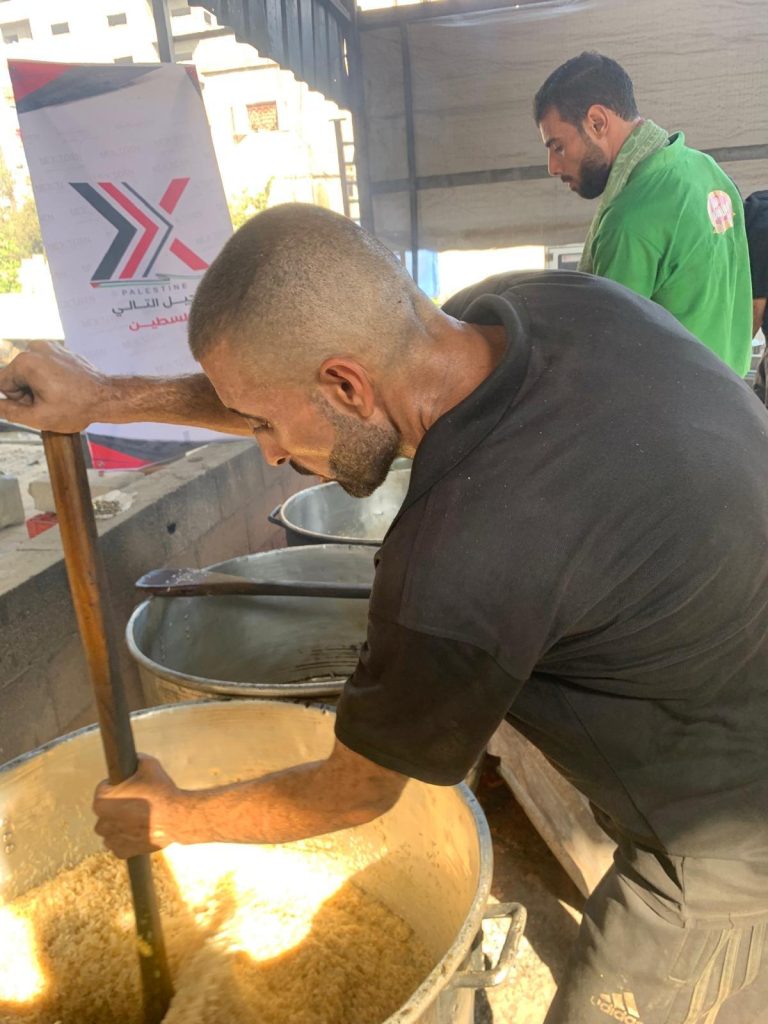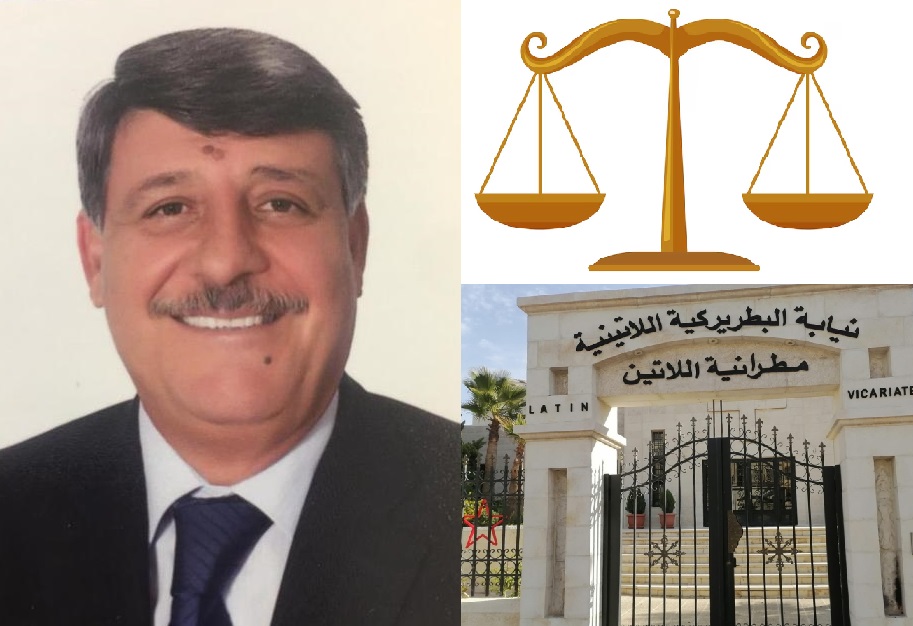
Previous NEXTGEN Palestine Opens Third Food Kitchen in Gaza

by Advocate Yacoub El Far*
The following article was first published in Arabic
Since the establishment of Jordan, the Jordanian Constitution has adopted the provisions based on the Covenant of Omar, granting Christian denominations privacy and independence in managing their affairs, particularly in regards to ecclesiastical jurisdiction over members of their denomination in matters of personal status. Article 109 of the Constitution embodies this principle by granting each recognized Christian Church the right to form a council, i.e., its own court, to handle matters of personal status for its members.
All Christian denominations have received special state care, in compliance with the principle of independence in managing their affairs, performing religious rituals, and establishing places of worship and schools.
This was well-received by members of the Christian Churches, who maintained this independence and demanded further independence, such as the current legislation specific to members of the Christian community regarding inheritance, the distribution of inheritance, and the determination of heirs and their legal shares, independent of the application of Islamic Sharia law to them regarding inheritance. This debate over this demand continues.
These courts have operated under their own legislation and the national legislation specific to Christian denominations in resolving disputes related to personal status issues for members of each church. The Greek Orthodox responded to the demands of its members to reform its judicial system and develop legislation related to personal status issues applied in Orthodox ecclesiastical courts. The Greek Orthodox Patriarchal Christian Family Law of Jerusalem was approved, as well as the law of litigation and its procedures before ecclesiastical courts. It also reformed the ecclesiastical judicial system by appointing civil judges alongside priest judges who have a degree of competence and experience in managing courts, sessions, and issuing decisions. His Beatitude Patriarch Youssef Absi, Patriarch of Antioch and All the East for the Melkite Greek Catholics, also responded to members’ call to appoint a president for the ecclesiastical court for the Greek Catholics in Jordan, who has a high academic degree. Father Dr. Jihad Al-Shuwaihat, a highly qualified judge in canon law and with extensive experience in administering canonical justice. Reform also occurred in the Arab Evangelical Episcopal Court.
However, the recent criticism directed by some lawyers in Jordan at canon courts does not encompass all courts, but rather concerns only the original Latin Canon Court in its current form. Lawyers pleading before this court have faced disruptions to the judicial system, courtroom closures, and delays in issuing urgent decisions, which constitute a fundamental violation of the proper administration of justice.
We appeal to His Beatitude Cardinal Pierbattista, Patriarch of the Latin Church of Jerusalem, as President of the First Instance Ecclesiastical Tribunal, to activate the Judicial Inspection Service to establish a legal authority for complaints.
We appeal to His Beatitude Cardinal Pierbattista, Patriarch of the Latin Church of Jerusalem, as President of the First Instance Ecclesiastical Tribunal, to activate the Judicial Inspection Service to establish a legal authority to be resorted to when a complaint is filed regarding a court or one of its judges deviating from the legal path in achieving justice.
The body of canon law, the legislation regulating the work of the Latin Church courts, and the apostolic will of the Supreme Pontiff, the Lord Jesus Christ, the gentle Judge, allow for the existence of a strong inspection service to carry out its work in receiving and processing complaints. This inspection service should be composed of qualified ecclesiastical judges with a high degree of knowledge and competence. The provisions of the Jordanian Constitution and Christian Communities Law No. 28 of 2014 regulate the work of the ecclesiastical judiciary within controls and conditions that must be maintained and monitored to ensure the achievement of justice among members of the church. Jordan has taken into account the ongoing social development and responded to the requests of these churches by issuing the Christian Communities Law No. 28 of 2014 to replace the Non-Muslim Communities Law No. 2 of 1930, which had become incapable of meeting the needs of the Christian community in matters of personal status. In this law, the state granted each sect the right to apply its own laws to matters of personal status, except the issue of inheritance, which is explicitly stated in Article 1086 of the Civil Code, which stipulates that the appointment of heirs, the determination of their legal shares in the inheritance, and the transfer of the estate are subject to the provisions of Sharia. Islamic law applies to Jordanians regardless of their religious affiliation or faith.
The implementation of these laws to achieve the objectives for which they were enacted is the responsibility of the presidency of each church which appoints judges and monitors their proper functioning.
*****************************************************************************************************************************
*Attorney Yaqoub Al-Far graduated from the Faculty of Law at Damascus University in 1973. He has been a member of the Bar Association since graduation and continues to do so. He is interested in Jordanian family affairs and women’s rights. He is an arbitrator in commercial cases and a legal advisor to numerous commercial companies and sole proprietorships.


تكافح مجلة “ملح الأرض” من أجل الاستمرار في نشر تقارير تعرض أحوال المسيحيين العرب في الأردن وفلسطين ومناطق الجليل، ونحرص على تقديم مواضيع تزوّد قراءنا بمعلومات مفيدة لهم ، بالاعتماد على مصادر موثوقة، كما تركّز معظم اهتمامها على البحث عن التحديات التي تواجه المكون المسيحي في بلادنا، لنبقى كما نحن دائماً صوت مسيحي وطني حر يحترم رجال الدين وكنائسنا ولكن يرفض احتكار الحقيقة ويبحث عنها تماشيًا مع قول السيد المسيح و تعرفون الحق والحق يحرركم
من مبادئنا حرية التعبير للعلمانيين بصورة تكميلية لرأي الإكليروس الذي نحترمه. كما نؤيد بدون خجل الدعوة الكتابية للمساواة في أمور هامة مثل الإرث للمسيحيين وأهمية التوعية وتقديم النصح للمقبلين على الزواج وندعم العمل الاجتماعي ونشطاء المجتمع المدني المسيحيين و نحاول أن نسلط الضوء على قصص النجاح غير ناسيين من هم بحاجة للمساعدة الإنسانية والصحية والنفسية وغيرها.
والسبيل الوحيد للخروج من هذا الوضع هو بالتواصل والنقاش الحر، حول هويّاتنا وحول التغييرات التي نريدها في مجتمعاتنا، من أجل أن نفهم بشكل أفضل القوى التي تؤثّر في مجتمعاتنا،.
تستمر ملح الأرض في تشكيل مساحة افتراضية تُطرح فيها الأفكار بحرّية لتشكل ملاذاً مؤقتاً لنا بينما تبقى المساحات الحقيقية في ساحاتنا وشوارعنا بعيدة المنال.
كل مساهماتكم تُدفع لكتّابنا، وهم شباب وشابات يتحدّون المخاطر ليرووا قصصنا.